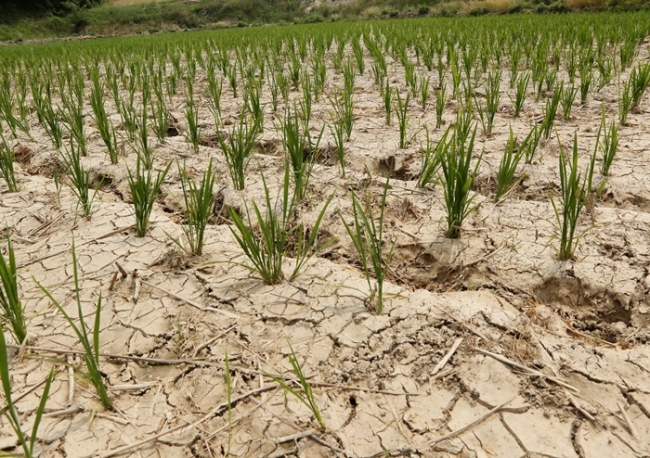The spread of Middle East respiratory syndrome is battering the nation’s economy, which was showing signs of recovery, sapping consumer spending and economic activity.
The agricultural sector is no exception. Experts said farmers were suffering from a decrease in demand for agricultural products as people avoid crowded places like department and discount stores.
According to the Korea Foodservice Industry Research Institute, local restaurants reported an average 38.5 percent drop in sales from June 8 to 14, negatively affecting the suppliers of food as well.
“The outbreak of MERS is also leading to cancellations of various tour programs to provide rural life experiences, one of the major income sources for some agricultural villages,” a Seoul official said.
The agricultural sector is no exception. Experts said farmers were suffering from a decrease in demand for agricultural products as people avoid crowded places like department and discount stores.
According to the Korea Foodservice Industry Research Institute, local restaurants reported an average 38.5 percent drop in sales from June 8 to 14, negatively affecting the suppliers of food as well.
“The outbreak of MERS is also leading to cancellations of various tour programs to provide rural life experiences, one of the major income sources for some agricultural villages,” a Seoul official said.

According to news reports, about 90 percent of 840 “farm experience villages” across the nation suffered cancellations after the MERS outbreak late last month.
Making matters worse is the worst drought in almost four decades, which is hitting the entire nation.
Minister of Agriculture, Food and Rural Affairs Lee Dong-phil vowed to muster 62.5 billion won ($56 million) to fight this year’s drought. The money will provide water to struggling farms.
Market watchers said the drought was expected to cause a surge in prices of vegetables and other agricultural products.
The continued weak yen has also hit farms. According to the Agriculture Ministry, outbound shipments of fresh and processed food products in May was $480.4 million, down 8.1 percent from a year earlier.
Korea’s farming industry is already facing difficulties as the nation is preparing for more imports of rice, the nation’s major staple, and an influx of cheaper Chinese products as a result of bilateral free trade agreement.
Korea opened its rice market this year to foreign suppliers after ending its 20-year import quota system. The government said that it would set a 513 percent tariff on imported rice. But five rice-exporting countries including the U.S. and China have opposed it at the WTO, demanding a drastic cut to the tariff.
Korea concluded a free trade agreement with China, its largest trading partner. The FTA is awaiting the National Assembly’s ratification.
Recently, the government has infuriated farmers by announcing a plan to import 10,000 tons of “meal rice” which is not for industrial purposes.
Farmers are sensitive to the import of meal rice as it is expected to compete with Korean products.
They argue that the government has no reason to import meal rice at a reduced tariff, as the nation already opened its market at a 513 percent tariff. They said the government must immediately call off the plan as it is feared to further dent domestic rice prices.
By Chung Joo-won (joowonc@heraldcorp.com)




![[Herald Interview] 'Amid aging population, Korea to invite more young professionals from overseas'](http://res.heraldm.com/phpwas/restmb_idxmake.php?idx=644&simg=/content/image/2024/04/24/20240424050844_0.jpg&u=20240424200058)











![[KH Explains] Korean shipbuilding stocks rally: Real growth or bubble?](http://res.heraldm.com/phpwas/restmb_idxmake.php?idx=652&simg=/content/image/2024/04/25/20240425050656_0.jpg&u=)

